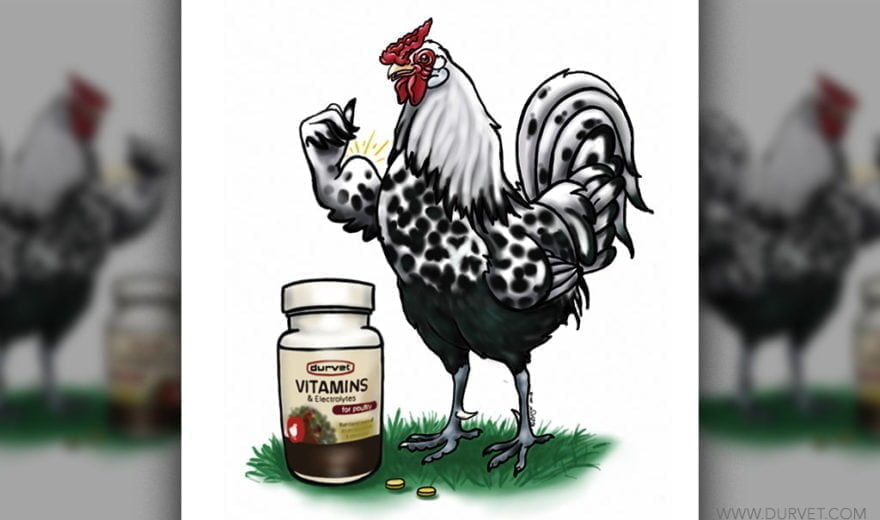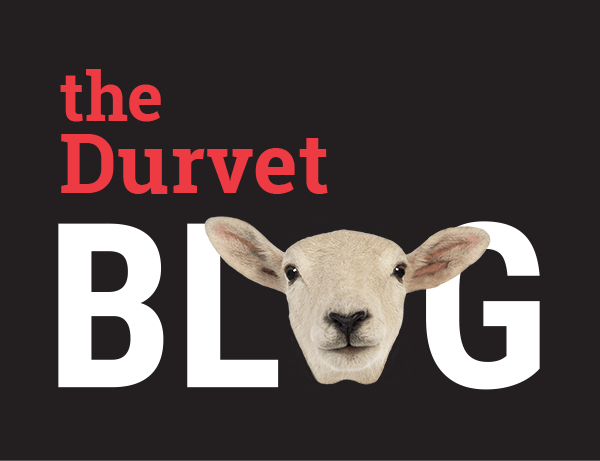
Vitamin deficiencies that occur in backyard flock are easy to avoid with the variety of feed formulations available, such as chick starter and layer feed. When fed as the only source of food intake, these provide a complete, nutrient-rich diet for our flock.
Deficiencies may arise with treats, scratch, or table scraps, off-setting the daily nutrition provided. Other factors that may cause a vitamin imbalance include intestinal parasites, stressful conditions which may alter the chicken's eating habits, illnesses and their ability to induce malabsorption, and specific medications we may use to treat disease. Coccidia, for example, is prevented and managed with a product called Amprolium (Corid). It is a thiamine analog and works by blocking Vitamin B-1 in which the protozoa coccidia need to thrive.
Vitamin deficiency could appear in any backyard flock. Understanding the underlying causes and how chickens utilize vitamins prepares for illness. To prevent future vitamin deficiencies one must be able to understand the nutritional values of feed formulations and be able to recognize vitamin absorption issues within the flock.
VITAMIN A
Adult birds require this vitamin to maintain general health, egg production and the all-important hatchability of these precious eggs. In chicks, it is crucial for their growth. Poultry lacking in Vitamin A may take weeks to show symptoms of a severe deficiency. The first signs noticed may be general ataxia, ruffled feathers, and weight loss. Eventually, this may manifest into what appears to be a chronic respiratory infection, including discharge from nostrils, and swelling around eyes. This deficiency is not something chickens will often experience. However, proper sources of Vitamin A include alfalfa meal, kale, fish oils, blended carrots, and the green grass in your backyard!
VITAMIN B
Like all other vitamins, we categorize Vitamin B into several factors. The focus in poultry being Vitamin B-1 (Thiamine) and Vitamin B-12, which play an essential part in the chicken's nervous system. Symptoms of deficiency will present itself in general weakness of the legs, "walking on hocks," weight loss, loss of coordination, and neck and leg jerks. In chicks, you may see the condition “star gazing.” Cooked eggs are an excellent source of Vitamin B, as well as an injectable form which can be prescribed by your veterinarian.
Vitamin D
"The Sunshine Vitamin" enables poultry to utilize and metabolize their diet completely. In brooding chicks, a deficiency will present itself in leg weakness, general failure to thrive, and ruffled feathers. Having an all-inclusive UVB light in your brooder may help with a chick's uptake of Vitamin D. In hens you may see rubber eggs or other egg-laying problems. The preferred source of Vitamin D is direct sunlight, which is crucial for all animals to thrive.
Vitamin E
Reproduction and the overall health of growing chicks require Vitamin E. It may take 3-4 weeks of a diet low in Vitamin E for birds to start showing symptoms. Chickens suffering from a Vitamin E deficiency will show muscular dystrophy, ataxia, muscle weakness, and may be found lying on their side with paralysis, before eventual death. Good supplemental sources of Vitamin E include vegetable oil and cereal products containing vegetable oil, eggs, liver, legumes and green plants. Any of these feed items may be given to affected laying hens to increase the hatchability of their eggs, and health of their chicks.
Vitamin G
Also known as Riboflavin, a deficiency of this vitamin can cause degeneration of nerve tissue, which may lead to leg paralysis in growing chicks, curled toes, and “walking on hocks.” Mature hens lacking this vitamin can pass the deficiency through the egg, which in turn will affect the growth of their chicks. Good sources of Vitamin G include alfalfa seeds and yeast.
Vitamin K
Vitamin K is crucial in allowing blood to clot. Impairment of blood coagulation is the primary symptom of a deficiency. While a Vitamin K deficiency is difficult to diagnose just from outward appearances, a severe lack of Vitamin K will turn any minor wound into a potentially fatal situation. Like Vitamin G, hens can pass this deficiency through her egg and in turn cause her chicks also to be affected. Some outward signs are bruising or hemorrhaging visible to the naked eye from a small bump or fall. Chickens routinely produce some vitamin K on their own by intestinal synthesis. Coccidiosis, necrotic enteritis, and the use of antibiotics can cause a decrease in this production, leading to the bird being dependent on getting their source of Vitamin K strictly from their diet. Thankfully, Vitamin K deficiency is also a rarity in Poultry. Vitamin K deficiency, if suspected, can be diagnosed with diagnostic blood work and treated by your veterinarian.
As chicken lovers, breeders, and enthusiasts, we are fortunate that there have been extensive studies regarding vitamins in poultry. Companies such as Durvet have given us a comprehensive understanding of when the need for supplemental vitamins is appropriate and have made providing them to our flocks easier than ever. Products like the Vitamin and Electrolytes for Poultry, by Durvet, is a simple to use, water-soluble powder that can be utilized as a preventative to keep your backyard flock healthy as well as assist in correcting a deficiency in chicks and adults. I highly recommend keeping a bottle of Durvet's Vitamin and Electrolytes for Poultry on hand in the event you may recognize symptoms or know your flock may be susceptible to developing a deficiency.
Here's to happy & healthy chickens!
Photo created and drawn by hand by: Jennifer Pike, www.chickenzoo.com

 BACK TO MAIN BLOG
BACK TO MAIN BLOG 
Comment